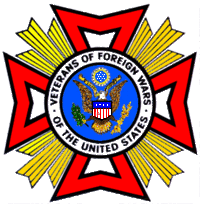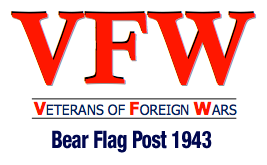



History
In their misery, some of these veterans banded together and formed organizations with what would become known as the Veterans of Foreign Wars of the United States. After chapters were formed in Ohio, Colorado and Pennsylvania, the movement quickly gained momentum. By 1915, membership grew to 5,000; by 1936, membership was almost 200,000.
Since then, the VFW's voice had been instrumental in establishing the Veterans Administration, creating a GI bill for the 20th century, the development of the national cemetery system and the fight for compensation for Vietnam vets exposed to Agent Orange and for veterans diagnosed with Gulf War Syndrome. In 2008, VFW won a long-fought victory with the passing of a GI Bill for the 21st Century, giving expanded educational benefits to America's active-duty service members, and members of the Guard and Reserves, fighting in Iraq and Afghanistan.
The VFW also has fought for improving VA medical centers services for women veterans.
Besides helping fund the creation of the Vietnam, Korean War, World War II and Women in Military Service memorials, the VFW in 2005 became the first veterans' organization to contribute to building the new Disabled Veterans for Life Memorial, which opened in November 2010.
Annually, the 2.1 million members of the VFW and its Auxiliary contribute more than 11 million hours of volunteerism in the community, including participation in Make A Difference Day and National Volunteer Week.
From providing $2.5 million in college scholarships and savings bonds to students every year, to encouraging elevation of the Veterans Administration to the President's Cabinet. The VFW is there.
HISTORY OF THE CROSS OF MALTA
The Veterans of Foreign Wars of the United States adopted for its symbol the Cross of Malta, which has a heritage of honor, duty, sacrifice and courage that dates back to the 11th Century.
The Cross has its origin in the Knights of St. John, a strict order of crusaders, originally founded to maintain a hospital for pilgrims journeying to the Holy Land. From this order evolved two divisions, the Knights of Templar, famed for their ability to fight, and the Knights Hospitaler, humanitarians who provided for the sick and distressed.
The Knights established branches throughout Europe and moved their headquarters to Cyprus. From Cyprus the headquarters was eventually moved to Rhodes in the 14th century and was transferred from there to the island of Malta in the 16th century. There they became known as the Knights of Malta.
 The
insignia of the Knights of Malta is basically the same as the one used
today by the Veterans of Foreign Wars. It is an 8-point cross formed by
four arrowheads meeting at the points. Each represents one of the
Beatitudes taken from Jesus' Sermon on the Mount. The arrowheads
indicate the knights were willing to fight for the principles of
justice and truth although their order was basically a peaceful one.
The
insignia of the Knights of Malta is basically the same as the one used
today by the Veterans of Foreign Wars. It is an 8-point cross formed by
four arrowheads meeting at the points. Each represents one of the
Beatitudes taken from Jesus' Sermon on the Mount. The arrowheads
indicate the knights were willing to fight for the principles of
justice and truth although their order was basically a peaceful one.
126 First Street West
PO Box 778
Sonoma, CA 95476

